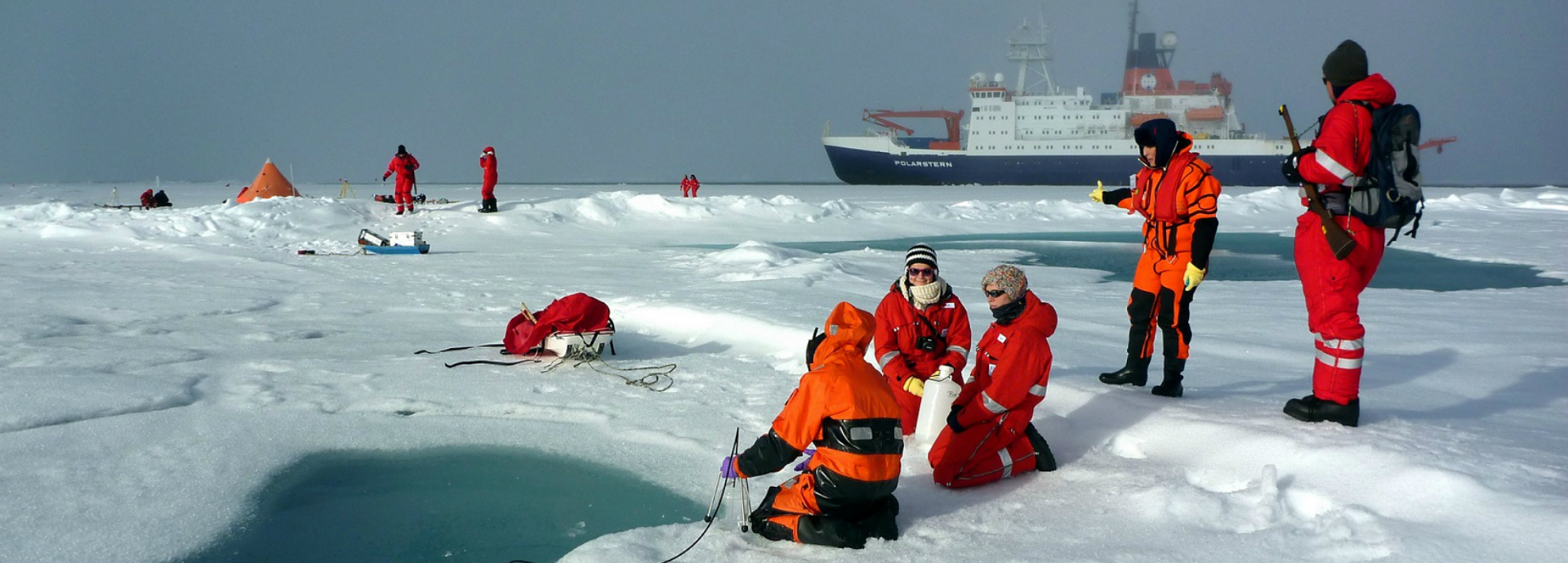New research involving the University of Stirling is seeking to understand how climate change is affecting the biological clock of ecologically important species in the Arctic Ocean.
The Chronobiology of Changing Arctic Sea Ecosystems (CHASE) study will analyse species that are migrating to the Arctic due to rising temperatures, and how they are adjusting.
The project is one of 12 new projects jointly funded by the UK’s Natural Environment Research Council (NERC) and Germany’s Federal Ministry of Education and Research (BMBF). The £8million investment falls under NERC’s existing Changing Arctic Ocean programme, which aims to better understand and predict changes to the Arctic marine environment and ecosystems.
Professor David Pond, of the Institute of Aquaculture at Stirling, is a Co-Investigator on CHASE.
He explained: “As the Arctic is warming, many marine organisms – such as zooplankton – are moving northwards to take advantage of new habitats. These migrations result in exposure to different day-lengths, which can be extreme compared to lower latitudes.
“We know that day-lengths are central to the timing of many lifecycle events and the setting of the biological clock , however, the consequences of these species migrating north are yet unknown.
“Our work will determine if these changes – which are known to affect many terrestrial organisms – will also impact marine zooplankton, which are centrally important to the functioning of the Arctic ecosystem.”

Professor David Pond
Professor Pond will work alongside lead investigators, Dr Kim Last, from the Scottish Association for Marine Science, and Professor Dr Bettina Meyer, of the University of Oldenburg in Germany.
Science Minister Sam Gyimah said: "I am proud the UK is leading the way in tackling harmful climate change and today’s announcement means world-class researchers from both the UK and Germany will now be doing vitally important work to understand changes to marine life in the Arctic Ocean.
“Through our modern Industrial Strategy we have committed to investing 2.4 percent of GDP on research and development to help tackle major global challenges like climate change, ensuring a better world for future generations."
Earlier this year, Professor Pond led a voyage to the Fram Strait, between Greenland and Svalbard, as part of the Changing Arctic Ocean’s DIAPOD project. The team investigated the impact of warmer winters across the polar region, which has resulted in year-on-year lows of sea ice – which is having an unprecedented effect on how the Arctic ecosystem operates.
The Changing Arctic Ocean programme – launched in February 2017 – aims to generate a better understanding of the Arctic to more accurately predict future change to the environment and the ecosystem. Within the programme, there are more than 170 scientists working at 32 organisations, based in both the UK and Germany.
Background information
Media enquiries to Greg Christison, Communications Officer, on 01786 466 687 or greg.christison@stir.ac.uk

